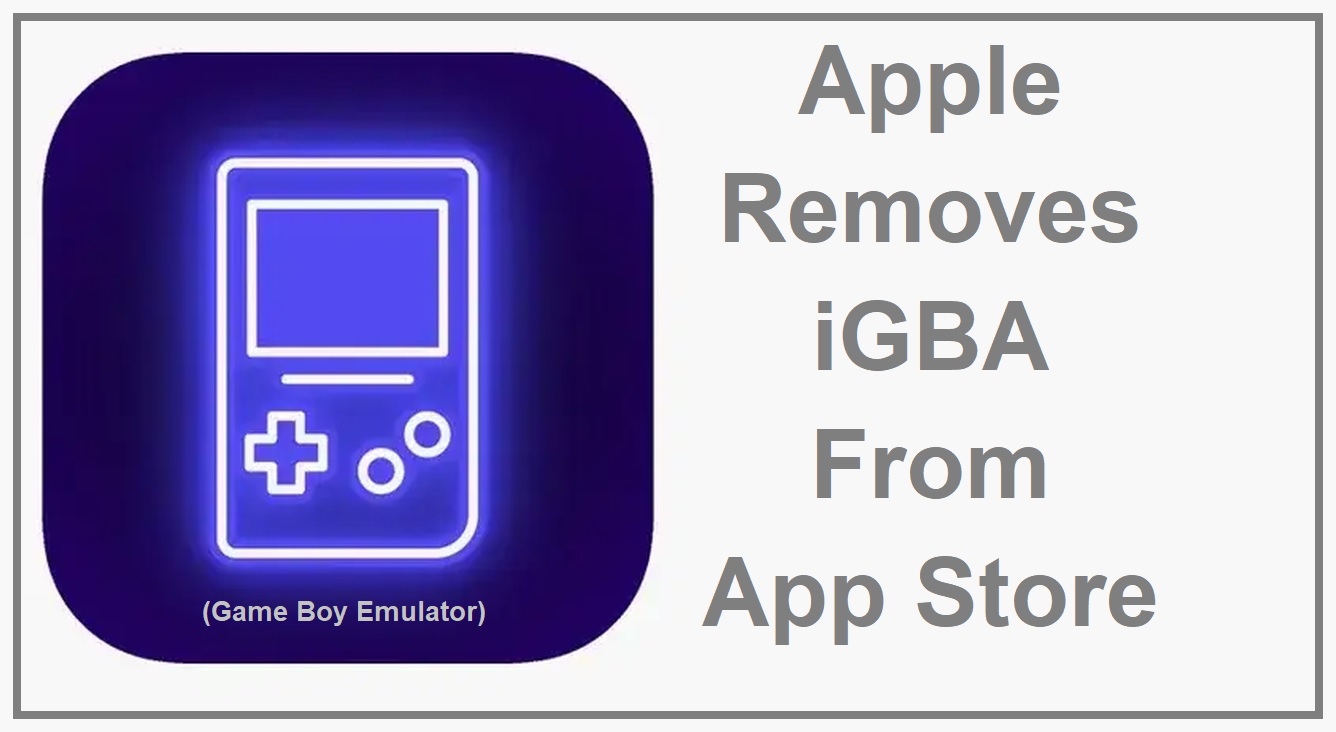Introduction:
In a move that underscores Apple’s commitment to maintaining the integrity of its App Store and protecting developers’ intellectual property rights. The tech giant has removed the Game Boy emulator iGBA from its digital marketplace. This decision serves as a stern reminder of Apple’s zero-tolerance policy towards deceptive practices and copyright infringements. Which threaten the App Store’s ecosystem.
Recent Released: How to Get and Use iGBA Emulator on iOS
The Offending App: iGBA
iGBA, a Game Boy emulator for iOS devices, found itself in Apple’s crosshairs due to multiple violations of the company’s App Review Guidelines. At its core, iGBA was identified as a replica of Riley Testut’s open-source GBA4iOS app. A popular emulator for playing classic Game Boy games on iPhones and iPads.
The Duplicitous Nature of iGBA
What set iGBA apart from its legitimate counterpart was the addition of intrusive advertisements. A clear indication of the app’s intention to profit from another developer’s hard work. Apple’s investigation revealed that iGBA attempted to present itself as an original work while blatantly copying GBA4iOS. A violation of copyright laws and App Store guidelines.
Apple’s Stance on Emulators and Intellectual Property
While Apple’s recent policy update permits retro game console emulators on the App Store. The company has made it clear that developers of such applications must assume full responsibility for all related software, including adherence to “all applicable laws.” This stance underscores Apple’s commitment to fostering a fair and ethical marketplace for developers.
Piracy Concerns and User Responsibility
It’s important to note that the removal of iGBA from the App Store was primarily due to its deceptive nature and violation of intellectual property rights. Rather than concerns over piracy arising from users’ ability to download ROMs (game files) from the web. Apple’s guidelines hold developers responsible for ensuring their apps comply with all relevant laws. Including those related to copyright and intellectual property.
The Impact of Apple’s Decision
Protecting Developer Rights and Incentivizing Innovation
By taking a firm stance against apps like iGBA. Apple sends a powerful message to the developer community. Intellectual property rights will be fiercely protected, and deceptive practices will not be tolerated. This decision not only safeguards the rights of developers like Riley Testut but also incentivizes innovation by ensuring that hard work and creativity are rewarded.
Maintaining App Store Quality and User Trust
Apple’s commitment to curating a high-quality App Store experience for users is another driving force behind the removal of iGBA. By weeding out deceptive and duplicitous apps, Apple reinforces user trust in the App Store and ensures that the platform remains a reliable source for genuine, well-crafted applications.
Combating Deceptive Practices
The primary reason behind iGBA’s removal was its alleged duplicitous nature. According to Apple, the app was identified as a replica of Riley Testut’s open-source GBA4iOS app, with the addition of intrusive advertisements. This practice not only violated the guidelines related to spam but also raised concerns about intellectual property infringement.
Retro Gaming and Emulation on iOS
Apple’s stance on retro game console emulators has been a topic of discussion within the gaming community. In a recent policy update, the company clarified its position, allowing such emulators on the App Store. However, developers of these applications are expected to assume full responsibility for all related software, including adherence to “all applicable laws.”
The Complexities of ROM Distribution
One aspect that has garnered attention is the issue of ROM (Read-Only Memory) distribution. While emulators themselves are not inherently illegal. The distribution and use of copyrighted game ROMs can be of intellectual property rights. Apple has made it clear that the removal of iGBA was primarily due to its deceptive nature and not directly related to concerns over piracy arising from users’ ability to download ROMs from the web.
Conclusion:
The removal of iGBA from the App Store serves as a powerful reminder of Apple’s unwavering commitment to upholding the integrity of its digital marketplace. By taking a firm stance against copyright infringements and deceptive practices. Apple not only protects the rights of developers but also fosters an environment that encourages innovation and maintains user trust. As the App Store continues to evolve, developers can expect Apple to remain vigilant in its efforts to create a fair and ethical ecosystem for all. The removal of iGBA from the App Store serves as a reminder of Apple’s commitment to maintaining a high-quality app ecosystem. While the company’s policy update allows for retro game console emulators. Developers must navigate the complexities of intellectual property rights and adhere to established guidelines. As the app landscape continues to evolve, striking a balance between preserving creativity and upholding legal and ethical standards remains a crucial challenge for both developers and platform owners like Apple
Table: Apple’s App Review Guidelines and iGBA’s Violations
| Guideline | iGBA Violation |
| Spam | Intrusive advertisements |
| Copyright Infringement | Replicating GBA4iOS without permission |
| Deceptive Practices | Presenting itself as an original work |
| Intellectual Property Rights | Violating Riley Testut’s rights as the creator of GBA4iOS |


